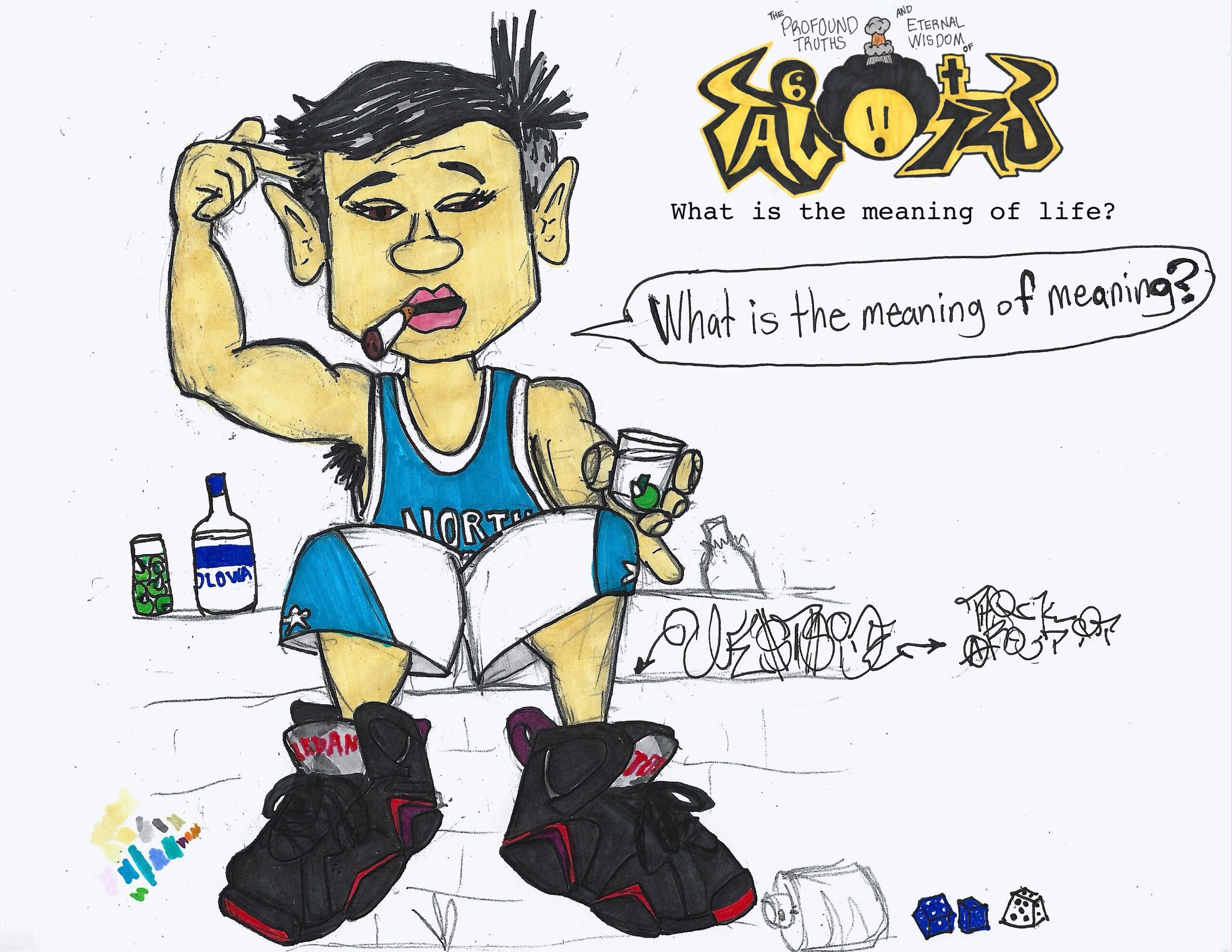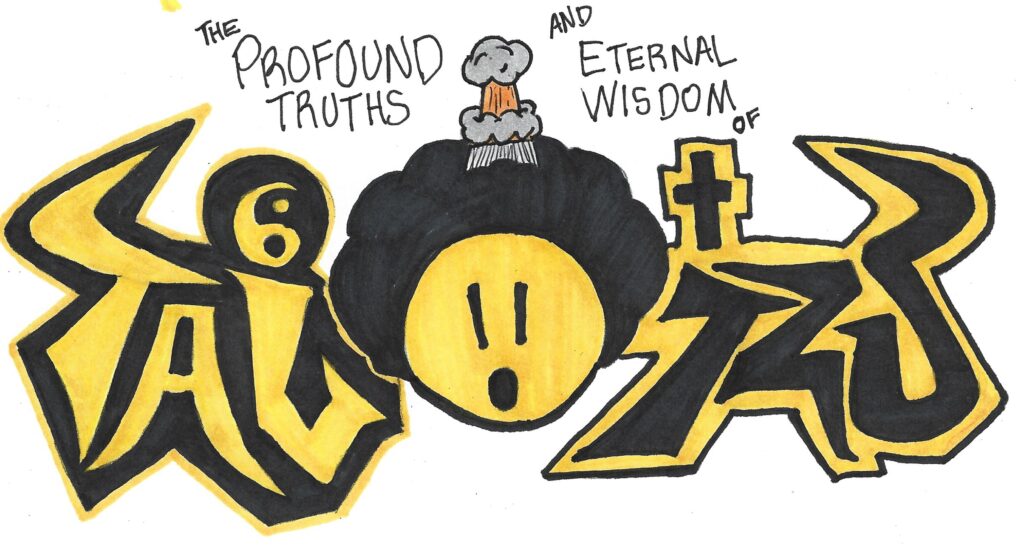Taj Tzu tackles the age-old question simpletons find profound and are never satisfied with the answer.

I should have known I couldn’t get away with the picture above; in fact, I thought of it right as I posted it—people will want more. This is the benefit of having eight readers: you get instant feedback, and the feedback on the picture/message was an overwhelming: “Where is the rest of it?” and “there is something wrong with the website; I can’t read it.” So, I better get to it I guess.
“What is the meaning of life?” the guy asks the Dali Lama (or whoever that is) after climbing to the top of the Himalaya Mountain; as if this enigma poses an existential threat. People sometimes are perplexed, or even vexed, when I answer a question with a question. However, it is not a rhetorical question as many people take it to be, as is common when answering a question with a question, but when I answer with a question, I mean it to mean that the answer is dependent on their opinions (e.g. Question: “Should I get this jacket in brown, or neon yellow?” Answer: “Do you want people to notice you while you’re wearing it?”). A form of deductive reasoning; not quite the Socratic method, but similar.
Taj Tzu answers the question “What is the meaning of meaning?” This is meant to first cause confusion; I would imagine a typical response going something like: “What the hell are you talking about? I don’t know!” That’s exactly right! You don’t know! If one is asking the meaning of life and doesn’t know what “meaning” even is, then they don’t even know what they are asking: any answer will be unsatisfactory because the question is unsatisfactory. What is the point of the question? What can one hope to glean from asking such a question? Why do we give things “meaning” in the first place? It seems that every single answer for at least a millennia is begging the question, so to (logically) speak.
Not to be tedious, but there are definitions of “life”, animate organic matter that grows, reproduces, and functionality, the period of time between birth and death, and vitality/vigor.[1] One could certainly develop “meaning” from these “meanings”: reproduce, grow, move, et cetera. The etymology doesn’t offer any deeper insight and seems to be consistent with its contemporary meaning.[2] I’m not a fan of biological nor the colloquial meanings for these definitions and considerations thing; unicelled organisms fitting the definite parameters, but how is a bunch of chemical reactions “life”? There needs to be some sort of consciousness involved, but I imagine technical definitions and postulates deduced from said definitions would be unsatisfactory (as I stated, they all are, but this one is particularly boring.)
“Read Marcus Aurelius. Of each particular thing ask: what is it in itself? What is its nature?” [Hannibal Lecter voice]. Just looking at dictionary definitions, we can conclude the “meaning” of any word is the syntactical semantical abstraction of a sensual material phenomenon in order to describe and communicate the purpose of, action, concept, discriminatory categories, et cetera. What is the significance of “meaning” or having a purpose? Humans give objective and abstract ideas purpose to manipulate the environment around them in order to raise development and prosperity, or ease the poverty which is the natural state of humans in the jungle. Biblically speaking, God showed all the animals to man to see what he ould name them and implies that he did so according to their usefulness (Genesis 2: 19-20). Anthropologically speaking, things do not just have intrinsic meaning; this is not a teleological denial of “purpose”—even if one believes in a divine “purpose”, it still must be given to a thing, or maybe it’s just a coincidence that every supposed purpose of everything happens to align with its usefulness to man. I know sarcasm doesn’t always read well; so let me be clear, this is not a coincidence. Therefore, identifying something’s “meaning” is to discover its function within the relationship of man and human dynamics.
An analysis of what the question is asking reveals the meaning of life is to give life a meaning. Hence, “What is the meaning of meaning?” As discussed, “meaning” came from the need to communicate and manipulate the world around us. So, how do we manipulate “life”? Life is consciousness, do the mathematics, and we see, in order to find the meaning of life, we need to manipulate our consciousness. As the Teacha Blastmaster KRS-One has taught us, the number one universal law is “know thyself.” You have to know yourself to know the meaning of life, which is to give life meaning, if you know what I mean.
[1]Oxford Languages and Google (2023). Life.
[2] Ibid. “Old English līf, of Germanic origin; related to Dutch lijf, German Leib ‘body’, also to live”
